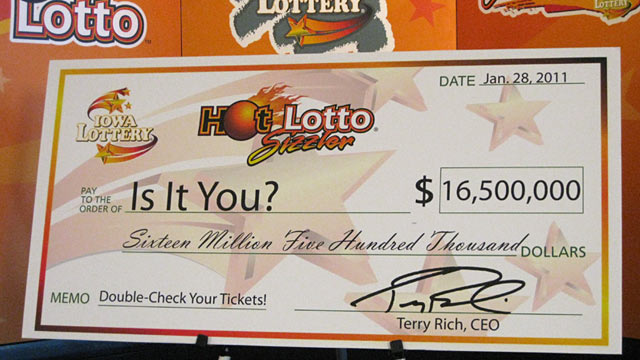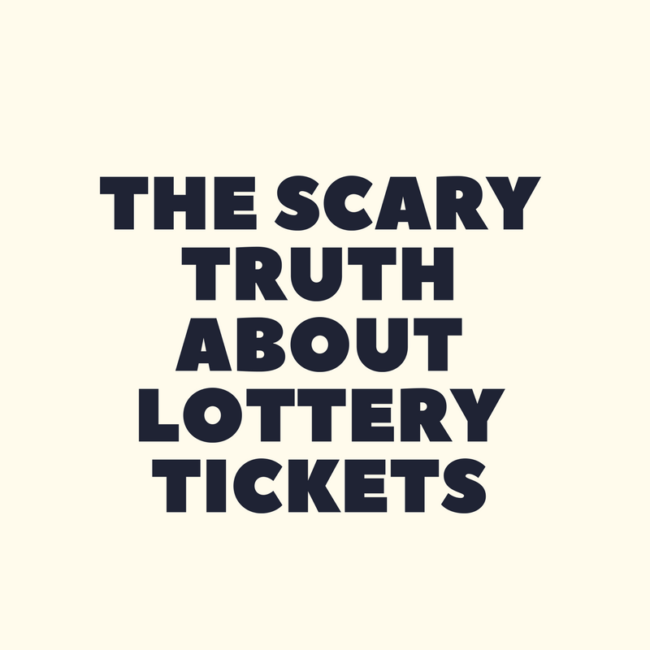The scary truth about lottery tickets
“Dad, I’ve got some good news and some bad news. The bad news is the firm’s closing on Friday, so we’ll be out of work. The good news is…. I’ve just won the lottery.”
These were the words said by Charlie Parish when he won a lottery ticket worth of $12,000,000 (after tax). On the day that he won the lottery, he had also received the grave news that his firm was closing down.
The chance of Charlie winning the lottery is 1 in 13,000,000. Putting this into perspective, Charlie had more chance of being struck by a crashing airplane (1 in 10,000,000), than winning the lottery. 1
So, what was the secret behind Charlie’s big lottery win?
To put it bluntly: he had luck, the type of luck which the rest of the world does not possess. (On the topic of luck, if you are interested in reading wether success is pure luck, check it out here)

An average person spends 750 dollars per year on lottery for an average time of usually 40 years. This accumulates to a grand total of 30,000$. The saddest thing is that after 40 years, most people have not even win a single ticket!
On the contrary, if one person invested $750 per year into large companies such as Apple or Google, you would get a yield of $752,000 in 40 years. Most lottery ticket buyers know this and yet they spend thousands on lottery tickets. But why?
Professional phycologist Robert Williams came up with many reasons as to why 292 million Americans buy lottery ticket each year. Below are the 3 reasons I found most interesting:
- The near miss effects
Originally discovered in the 90’s, the near miss effect is the process of thinking that you were very close to winning, even if the margin of loss was massive. Dr. Williams explains that if you fail to win a lottery ticket which had odds of 1 in 242 million, the near miss effect will cause your brain to think that the odds were only 1 in 60. This will motivate you to try again.
The original purpose of the near miss effect was used by our ancestors. The aim of it was to motivate our ancestors to catch the “prey” even if the odds were humongous. In modern world, the near miss effect can keep us motivated in improving our skills in many aspects of life. For example, the near miss effect can help a footballer who is practicing his shot accuracy to stay motivated. Even if the footballer keeps on missing all his shots, his brain will tell him that he was very close. However, in regard to lottery and gambling, this effect defiantly plays a negative roll.
- Failure to understand low probability
Humans simply cannot comprehend large numbers,
This is understandable as our ancestors only had to comprehend small numbers such as how many people in the clan or how much berries to pick. These numbers would usually not exceed more than 300.
However, nowadays we are given massively huge numbers such as 1 in 100,000. Evolution has simply not caught up with this massive jump…
This is one of the biggest reasons for why many people do not understand that 1 in 13,000,000 is a very very very low probability.
- Availability bias
Nowadays, we are bombarded by thousands of news articles on social media. Many of these news articles constantly highlight the lives of lottery winner. The constant exposure to this makes us feel as if winning lottery is possible.
Like Dr. William put it “That’s because jackpot winners always make the news, and jackpot losers never do, so the stories of the winners stand out much more in our memories”
So, should you stop buying lottery tickets?
The choice is up to you,
The chances of winning are extremely small.
If you are spending thousands of dollars on lottery tickets in the hope of getting rich one day, just think about Dr. William.
However, if you are doing it for fun, just to enjoy the excitement created right before scratching that lottery ticket, then go ahead!
1. [https://en.wikipedia.org/wiki/Lottery_mathematics]↩

One reply on “The scary truth about lottery tickets”
Keep this going please, great job!